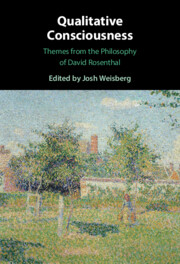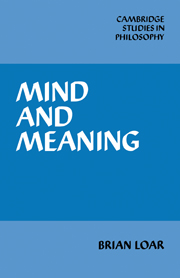The Themes of Quine's Philosophy
Meaning, Reference, and Knowledge
£39.99
- Author: Edward Becker, University of Nebraska, Lincoln
- Date Published: July 2014
- availability: Available
- format: Paperback
- isbn: 9781107424937
£
39.99
Paperback
Other available formats:
Hardback, eBook
Looking for an inspection copy?
This title is not currently available on inspection
-
Willard Van Orman Quine's work revolutionized the fields of epistemology, semantics and ontology. At the heart of his philosophy are several interconnected doctrines: his rejection of conventionalism and of the linguistic doctrine of logical and mathematical truth, his rejection of the analytic/synthetic distinction, his thesis of the indeterminacy of translation and his thesis of the inscrutability of reference. In this book Edward Becker sets out to interpret and explain these doctrines. He offers detailed analyses of the relevant texts, discusses Quine's views on meaning, reference and knowledge, and shows how Quine's views developed over the years. He also proposes a new version of the linguistic doctrine of logical truth, and a new way of rehabilitating analyticity. His rich exploration of Quine's thought will interest all those seeking to understand and evaluate the work of one of the most important philosophers of the second half of the twentieth century.
Read more- Proposes a new version of the linguistic doctrine of logical truth and a new account of analyticity
- Shows how Quine's views developed over the years
- The book presents an authentic study, as the author discussed early drafts of the work with Quine himself
Reviews & endorsements
'Edward Becker provides a close and accurate explication and critical assessment of Quine's doctrines concerning conventionalism, analyticity, indeterminacy of meaning, and inscrutability of reference. All of this is accomplished in a fine, in fact an enviable, writing style. The book will be of especial value to Quine enthusiasts and critics as well as a wider audience of philosophers and scholars.' Alex Orenstein, City University of New York
See more reviews'Becker relentlessly pursues a comprehensive understanding of Quine's philosophy and its constituent doctrines, from the most accessible to the most obscure. This book will be invaluable for students of Quine, and for anyone interested in the further development of the Quinean themes Becker so ably expounds.' David Pitt, California State University, Los Angeles
'I recommend Becker's addition to the ever expanding literature on Quine's philosophy, a body of scholarship to which Becker has contributed significantly.' George Lăzăroiu, Review of Contemporary Philosophy
Customer reviews
Not yet reviewed
Be the first to review
Review was not posted due to profanity
×Product details
- Date Published: July 2014
- format: Paperback
- isbn: 9781107424937
- length: 332 pages
- dimensions: 230 x 153 x 20 mm
- weight: 0.5kg
- availability: Available
Table of Contents
Preface
Acknowledgements
1. Conventionalism and the linguistic doctrine of logical truth
2. Analyticity and synonymy
3. The indeterminacy of translation
4. Ontological relativity
5. Criticisms and extensions
Concluding remarks: conventionalism and implications
Bibliography
Index.
Sorry, this resource is locked
Please register or sign in to request access. If you are having problems accessing these resources please email [email protected]
Register Sign in» Proceed
You are now leaving the Cambridge University Press website. Your eBook purchase and download will be completed by our partner www.ebooks.com. Please see the permission section of the www.ebooks.com catalogue page for details of the print & copy limits on our eBooks.
Continue ×Are you sure you want to delete your account?
This cannot be undone.
Thank you for your feedback which will help us improve our service.
If you requested a response, we will make sure to get back to you shortly.
×





